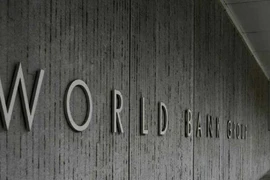A number of regions across the country have already imposed a similar ban –South Kalimantan’s Banjarmasin, East Kalimantan’s Balikpapan, Bali’s Denpasarand Jakarta’s satellite city of Bogor in West Java.
Head of the Jakarta Environment Agency Andono Warih said in general, businessplayers support this policy, adding that it actually reduces their cost ofproviding single-use plastic bags.
According to Andono the policy is instrumental in reducing plastic wastedisposed of at Bantar Gebang landfill in Bekasi, West Java – the end point inJakarta’s waste disposal process, which may only have one year left beforereaching its maximum capacity.
He said he hopes this will increase awareness and make people use single-useplastic bags more wisely and carry more environmentally friendly reusable bags.
The Jakarta administration has disseminated information on the policy to themanagement of 85 shopping centres, more than 2,000 convenience stores and 158traditional markets across the city, as well as the public.
The regulation serves as a legal basis for the use of eco-friendly bags instores and markets. It carries punishments for shopping centres found violatingthe ban on single-use plastic bags, which range from written warnings and finesto permit suspension and termination.
However, it allows sellers to provide single-use plastic bags for non-packagedfoodstuffs if there is no eco-friendly packaging available. It also excludessingle-use plastic bags for online shopping and food deliveries.
According to the Jakarta Environment Agency’s data, an average of 7,702 tonnesof the city's trash was disposed of at the Bantar Gebang landfill every daylast year, 34 percent of which was plastic waste.
With decreasing economic activity during the COVID-19 outbreak, Jakarta has seen a constantreduction of waste disposed of at Bantar Gebang, with the agency reporting189,979 tonnes of waste sent to the landfill in May, 37.8 percent lower than305,339 tonnes in January./.




























